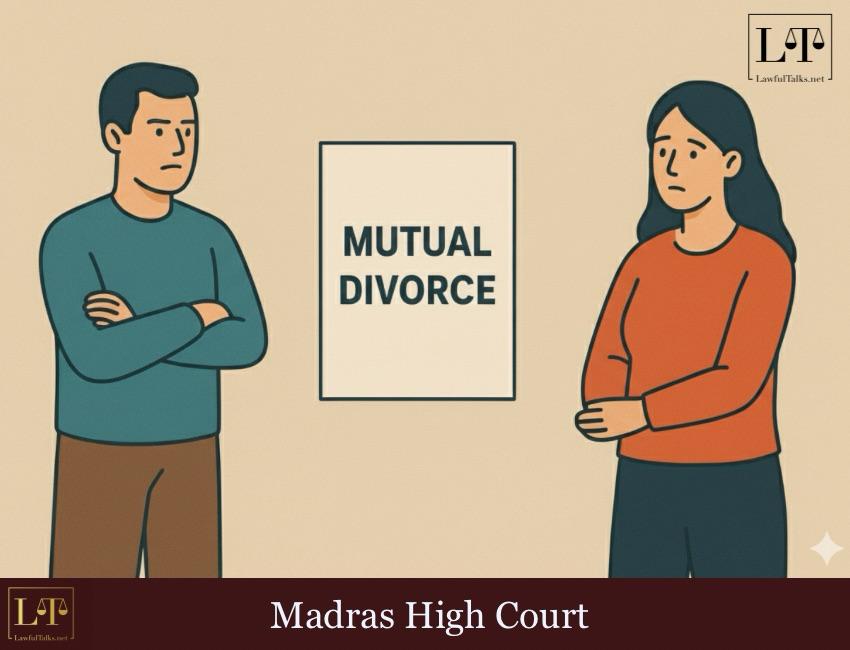Allahabad HC Sets Aside Afzal Ansari's Conviction, Allows Him to Continue as MP

Justice PB Balaji of the Madras High Court recently delivered a crucial observation on mutual divorce cases. The court stated that when both parties have mutually agreed to part ways, insisting on the mandatory cooling-off period only intensifies their suffering and should therefore be waived.

After examining multiple Supreme Court precedents and judgments from other High Courts, the judge emphasized this point by noting,“Independently, I also find that both the petitioners have filed separate affidavits even in this revision, affirming their decision to go separate ways. The interest of any children is also not involved in the present case, since the parties were not blessed with any issues and both the petitioners have categorically asserted that the relationship has become irreconcilable and distressing. In such circumstances, compelling the petitioners to wait for the mandatory period to expire would only further increase their agony. The petitioners have also stated that their decision is voluntary and only based on their free will and there is no fraud, collusion or undue influence brought upon them to file the mutual consent divorce petition,” .
Facts:
This judgment came during the hearing of a revision petition from a husband and wife challenging a docket order issued by the Family Court in Coimbatore. The couple sought a mutual divorce under Section 10A of the Indian Divorce Act but faced resistance since their plea was filed before completing the two-year separation period mandated by law.
The Family court first rejected their petition for this reason. Even after the couple appealed to the High Court and was allowed to re-submit the petition, the Family Court again held that the one-year separation period under Section 10A could not be waived, leading to the challenge before the Madras High Court.
The petitioner’s counsel cited key landmark Supreme Court rulings including Shilpa Sailesh vs Varun Sreenivasan, which held that the courts may waive the mandatory six-month waiting period under Section 13B of the Hindu Marriage Act if satisfied.
Additionally, the counsel cited the Kerala High Court ruling in Anup Disalva and Another vs Union of India, where Section 10A of the Divorce Act was declared unconstitutional and violative of fundamental rights.
The Madras High Court noted that it was not bound by the Kerala High Court’s decision, but treated it as persuasive because the Supreme Court had taken a similar view on allowing courts to waive the cooling-off period.
Consequently, the Madras High Court reaffirmed that Family Courts have the discretion to dispense with the mandatory waiting period and should not force parties to endure it before filing for a mutual consent divorce under Section 10A of the Indian Divorce Act.
In light of this, the court indicated its willingness to overturn the docket order of the Family Court and ordered the petition to be numbered if everything was found to be in order.
Appearance:
Counsel for the petitioner : Mr. G. R. Deepal
Case Details :SGS and another v. NIL, CRP No. 4013 of 2025

Anam Sayyed
4th Year, Law Student
Latest Posts
Categories
- International News 19 Posts
- Supreme Court 390 Posts
- High Courts 383 Posts



















































































































































































































































































































































































































































































































































































































































































































































































































